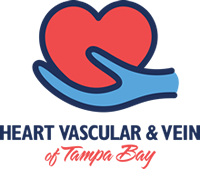Treatment of Atrial Fibrillation
Catheter Ablation to Relieve AF symptoms and improve patient’s quality of life
TREATMENT OF ATRIAL FIBRILLATION
Atrial fibrillation (AF or Afib) can greatly affect your quality of life, energy levels, and physical activity. Treating AF is important as it may increase the risk of blood clots and stroke. AF as a disease worsens over time. Speak with your doctor about what treatment options are right for you.
GOALS IN TREATING ATRIAL FIBRILLATION
- Relieve AF symptoms and improve patient’s quality of life
- Prevent blood clots to decrease the risk of stroke
- Control the heart rate to allow the ventricles (lower heart chambers) enough time to fill with blood
- Restore the heart rhythm to allow the atria (upper heart chambers) and ventricles to work together more efficiently
The following Afib treatments may be prescribed:
- Medication to control the heart rate or rhythm (anti-arrhythmic drugs)
- Blood thinners (anti-coagulation therapy) to prevent blood clots from forming
- Cardioversion (an electrical shock is delivered to the heart) during anesthesia, or through medication, to reset an abnormal heart rhythm back to normal
- Catheter ablation to terminate abnormal electrical pathways in the heart tissue
- Pacemakers and defibrillators (implantable) to detect and treat atrial fibrillation early and suppress the onset of AF
- Minimally invasive (AF only) or open-chest (in conjunction with other cardiac surgery) surgical ablation to create lesions that block abnormal electrical circuits causing atrial fibrillation
Once atrial fibrillation is thought to be suppressed or treated, care must still be taken to monitor for recurrences of AF. Even if there are no symptoms, atrial fibrillation may cause a stroke.
Talk to your doctor about which treatment options are right for you.
DECIDING NOT TO GET TREATMENT
Atrial fibrillation can be a serious medical condition and if left untreated, it may lead to:
- Blood clots causing stroke or heart attack
- Fatigue
- Heart failure
- Fainting
To help prevent these serious events, it’s important to get your heart checked periodically even if there are no symptoms. If you are diagnosed with atrial fibrillation, talk to your doctor about which treatment options are right for you.
RISKS OF NOT TREATING AF
View the following animation on the risks associated with not treating AF.
Information on this site should not be used as a substitute for talking with your doctor. Always talk with your doctor about diagnosis and treatment information.
